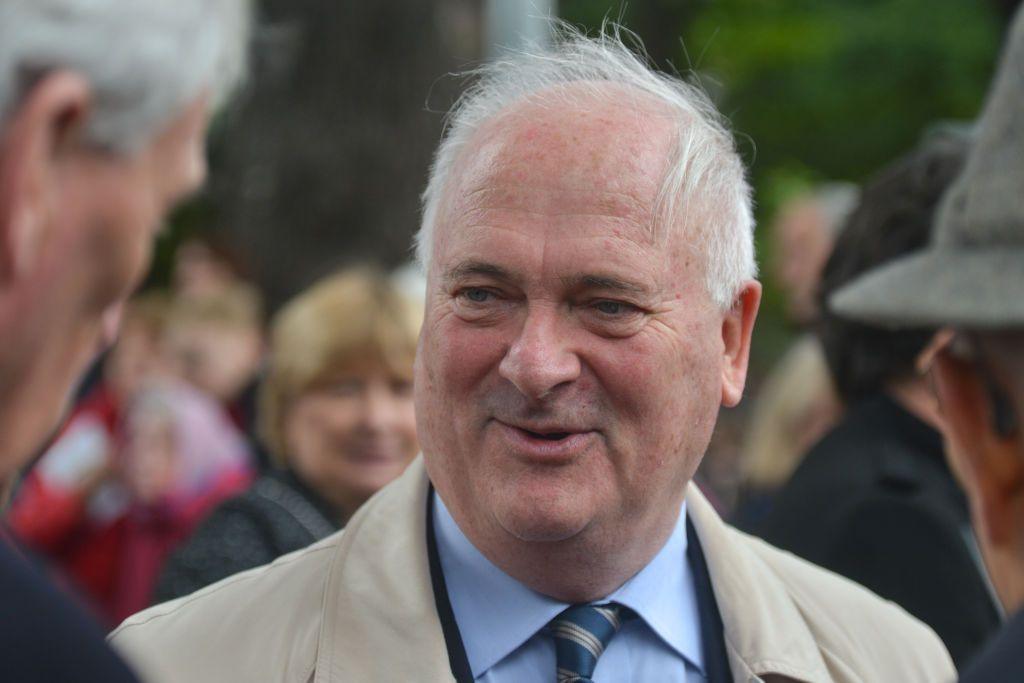State funeral for 'unassuming' ex-Irish PM John Bruton
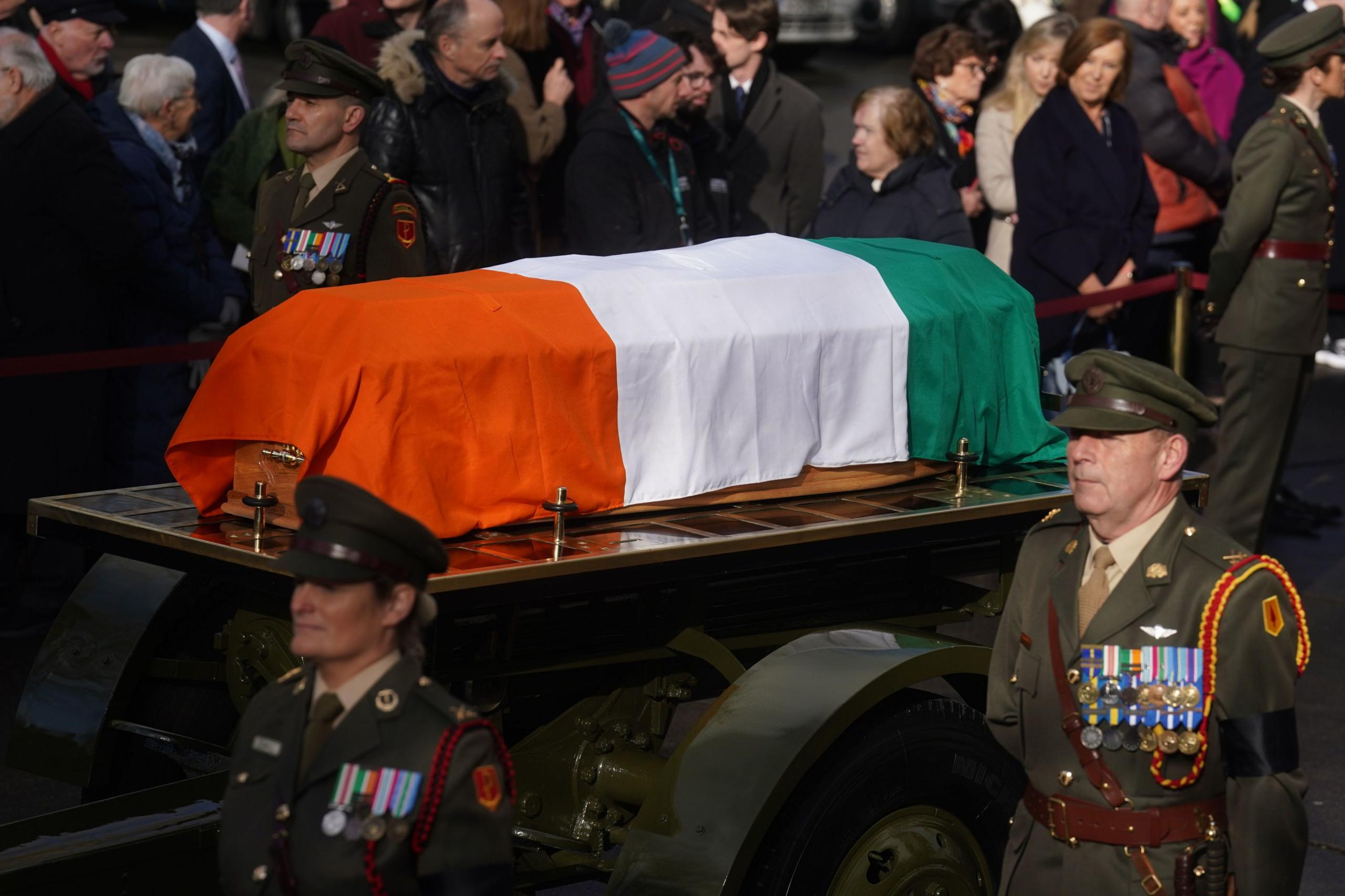
As part of the state funeral service, the coffin of former taoiseach John Bruton is placed on a gun carriage
- Published
Former taoiseach (Irish prime minister) John Bruton was an "exceptionally good man", mourners at his funeral have been told.
Hundreds attended a state funeral for the 76-year-old Fine Gael politician who died in the Mater Hospital in Dublin on Tuesday.
Mr Bruton served as taoiseach from 1994 to 1997.
He was instrumental in the evolving Northern Ireland peace process along with the then-UK Prime Minister John Major, with whom he launched the Anglo-Irish Framework Document in 1995., external
Mr Bruton's remains were removed to St Peter's and St Paul's Church in Dunboyne, County Meath, on Friday ahead of Saturday's funeral Mass.
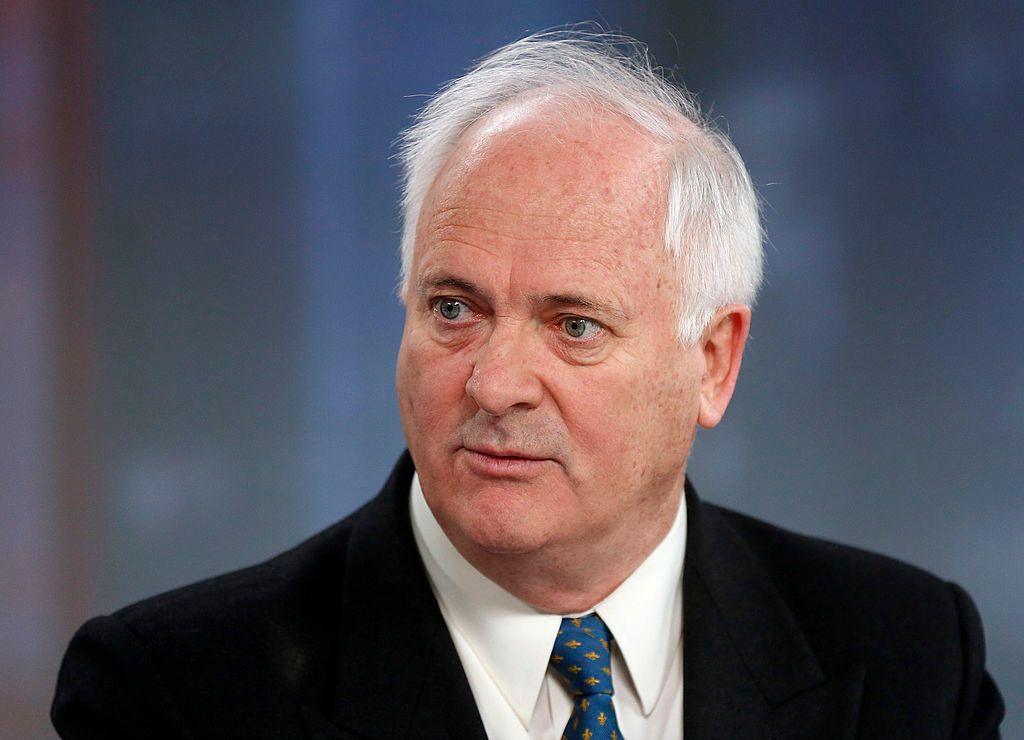
John Bruton died on Tuesday after a long illness
'A political icon'
Allow X content?
This article contains content provided by X. We ask for your permission before anything is loaded, as they may be using cookies and other technologies. You may want to read X’s cookie policy, external and privacy policy, external before accepting. To view this content choose ‘accept and continue’.
Mr Bruton’s wife Finola, his children Matthew, Juliana, Emily and Mary-Elizabeth, and his grandchildren and his brother – former minister Richard Bruton – were all at the service.
Former taoiseach Enda Kenny said Mr Bruton's death marked the passing of an era and "a political icon in County Meath and in Ireland".
Speaking to reporters, Mr Kenny said that Mr Bruton was "a friend of mine for 50 years, I feel that deeply, but for Finola, and his family, it's the passing of an era.
"Is it an emotional day. I see his face, I hear his voice. I know his mind.
"You'd certainly know that John Bruton was in a room when you were with him."
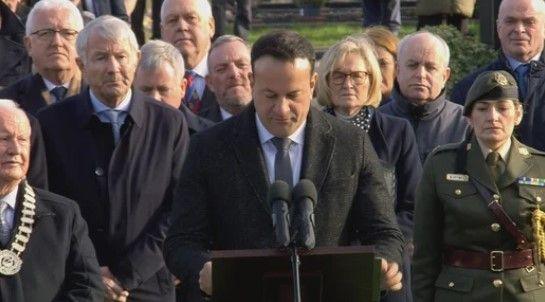
Taoiseach Leo Varadkar has made a graveside oration
A life 'defined by love'
During his graveside oration, Taoiseach ( Irish Prime Minister) Leo Varadkar said John Bruton's life was "defined by love – love of family, love of county, love of politics, love of our party, love of country".
Leo Varadkar described John Bruton as an inspiration to him throughout his career.
Mr Varadkar also said: "John loved Ireland, and it was a real love, not defined by dislike or fear of others, but by a genuine love of our country and what we could be. It was a noble, true and modern patriotism."
A 'beacon of courage'
John Bruton changed Ireland considerably for the better, he added.
"When others sullied our flag by carrying out terrorist atrocities in its name, John was a beacon of courage and integrity who offered a vision of an inclusive and peaceful island," Leo Varadkar said.
"In the framework document that he negotiated with the British Prime Minister John Major, we see many elements of what later became the Good Friday Agreement.
"He reached out to the unionist community because he genuinely believed that this should be a shared island in which all identities would be respected and accepted," he added.
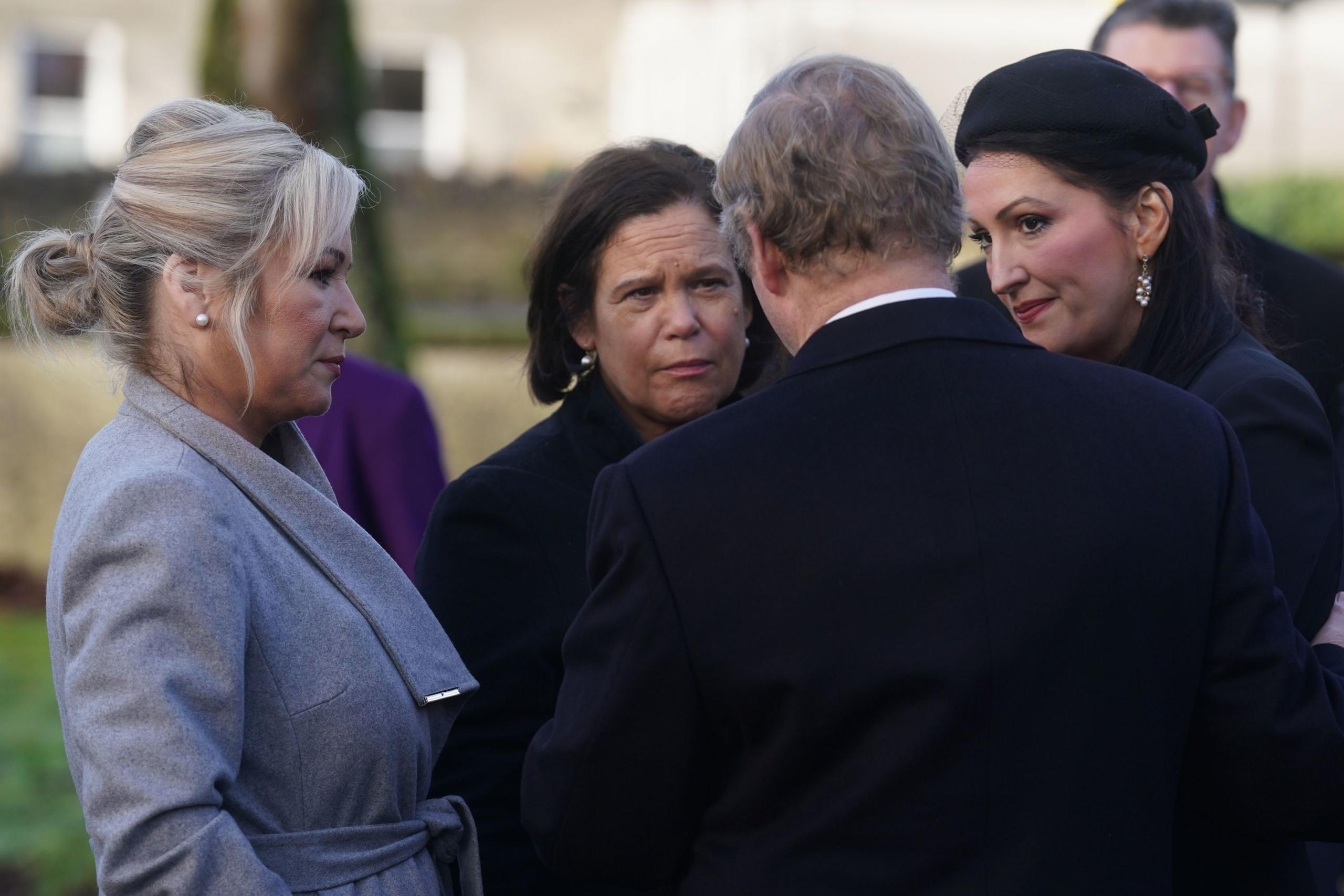
Northern Ireland's First Minister Michelle O'Neill, Sinn Féin leader Mary Lou McDondald and Northern Ireland's Deputy First Minister Emma Little-Pengelly were among the attendees
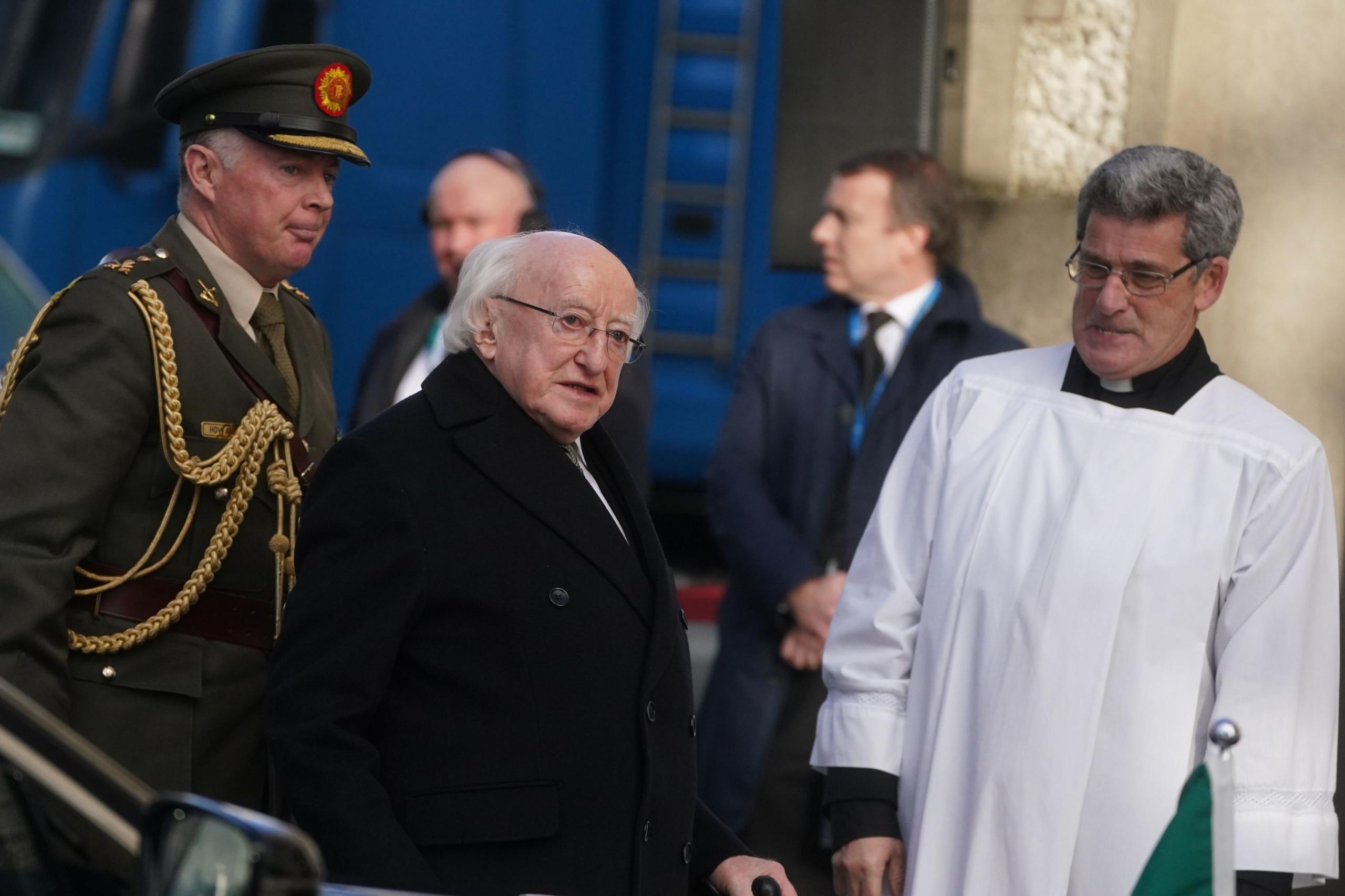
Irish President Michael D Higgins at St Peter's and St Paul's Church in Dunboyne, County Meath
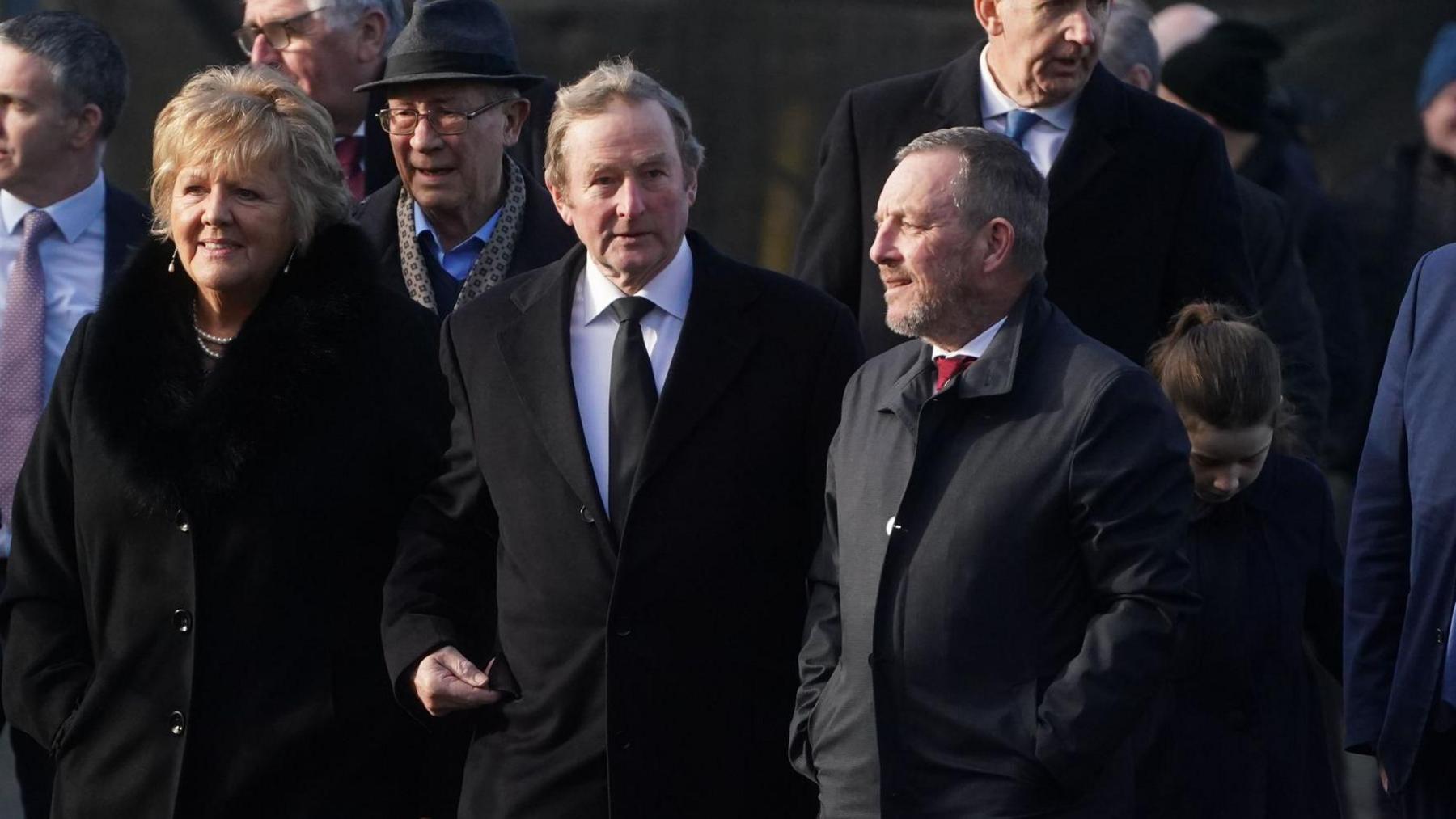
Former taoiseach Enda Kenny (centre) arrives for the the state funeral of former taoiseach John Bruton at Dunboyne, County Meath
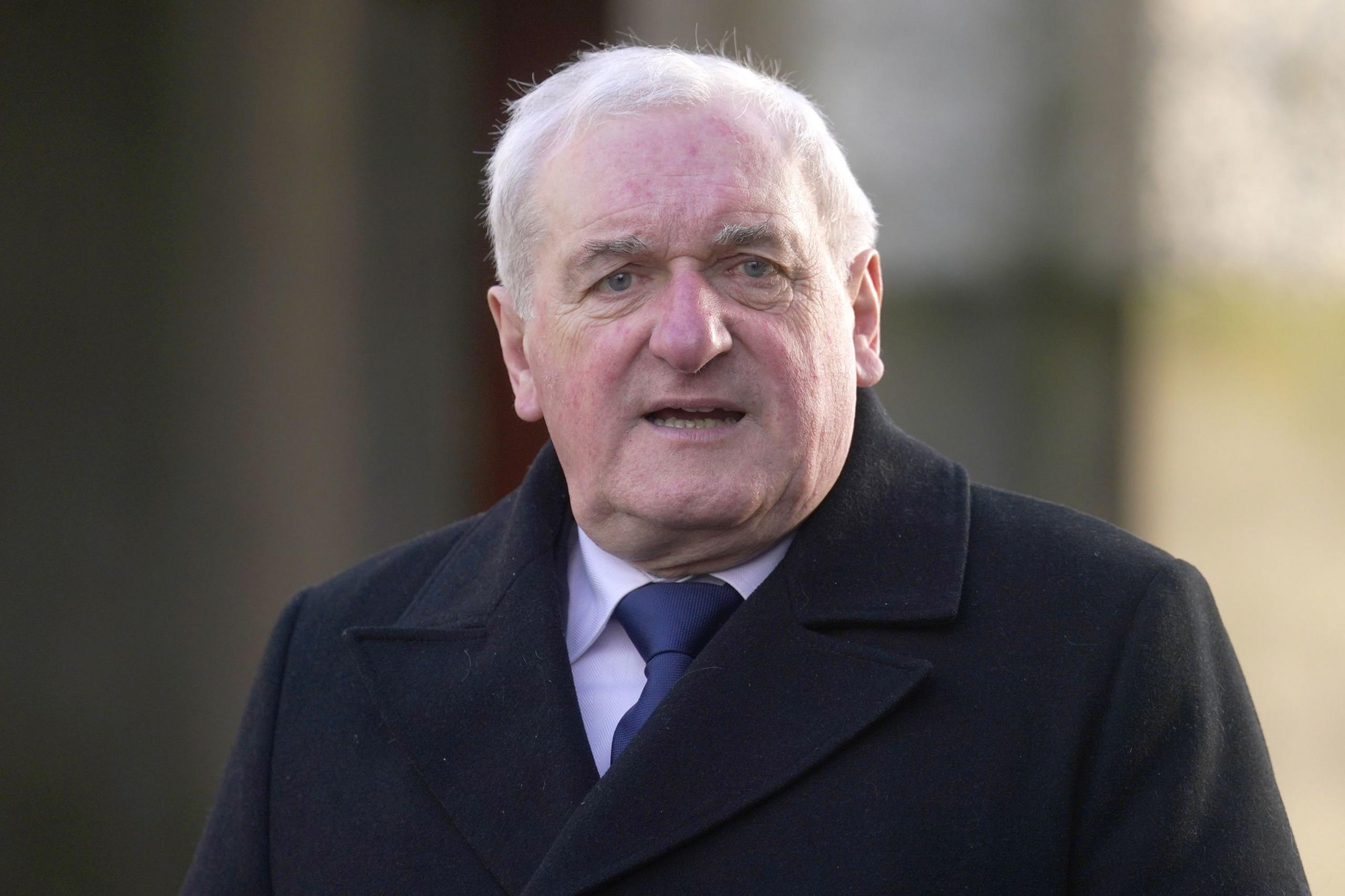
Former taoiseach Bertie Ahern pays tribute to John Burton
'He served us so well'
Former Taoiseach Bertie Ahern told reporters: "I served with John for over 40 years in one form or another, from being in the Dail and out of the Dail,"
"I think he served us so well, and I think he did so many jobs at home and abroad, I had a lot of dealings with him when I was taoiseach, when he was EU ambassador to Washington and he worked incredibly hard", he added.
'Man of integrity'
The homily was delivered by Fr Bruce Bradley SJ, a friend of the Bruton family, who described the former taoiseach as a “exceptionally good man”, who was "humble and unassuming" and "a man of integrity and truth”.
The priest spoke of his “remarkable… varied and successful career” which was “more than enough to fill many columns”.
Mr Bruton’s successes included his leadership of Fine Gael, the “unexpected” Rainbow Coalition he led in the 1990s and “his patient, pioneering cooperative part in enabling a cessation of violence in Northern Ireland,” Fr Bradley said.
“In all his interactions, with those who shared his outlook as well as with those who did not, he showed a capacity to stand in the other person’s shoes, a quality of particular importance in the discussions and negotiations with northern unionists.”
Fr Bradley added that Mr Bruton was a “seriously religious man” as a Catholic in a “deep and not at all sectarian sense”, which was an aspect of his life that “is largely missing from the public commentary”.
Born in Dublin on 18 May 1947, Mr Bruton was elected to the Dáil (lower house of the Irish Parliament) to represent Meath in 1969.
As taoiseach he led a so-called "rainbow coalition" government of Fine Gael, Labour and Democratic Left but lost the 1997 general election to Bertie Ahern's Fianna Fáil party.
During his tenure as taoiseach he steered through a referendum that paved the way for the legalisation of divorce in Ireland.
He continued to lead Fine Gael until 2001 and later served as the EU ambassador to the United States.
Related topics
- Published6 February 2024
